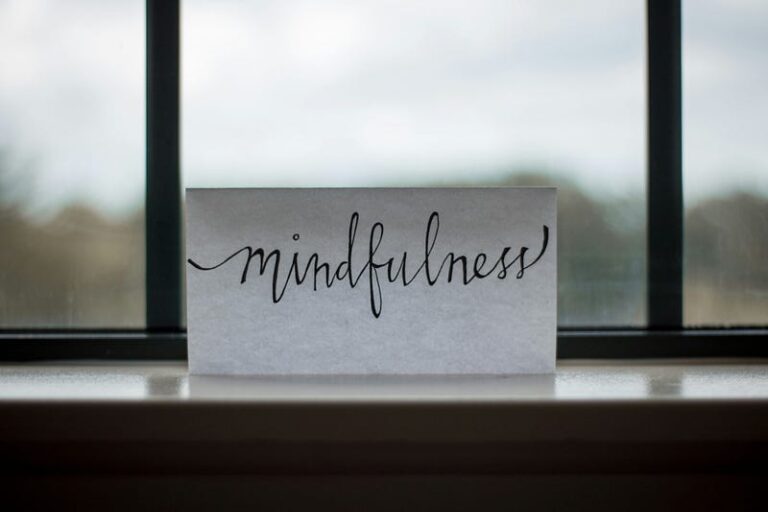The Power of Self-Knowledge: A Lesson from Robert Greene’s The Daily Laws
In our busy lives, we often focus on external achievements — advancing in our careers, building relationships, and managing daily tasks. But how often do we take the time to truly understand ourselves? Today, we’re diving into an essential lesson from Robert Greene’s The Daily Laws that can change the way you approach your life. It’s all about self-knowledge — the idea that knowing yourself is the most powerful type of knowledge you can have.
Why Self-Knowledge Matters
In today’s fast-paced world, it’s easy to get caught up in the whirlwind of daily responsibilities and distractions. We focus so much on excelling externally that we tend to overlook one crucial aspect: understanding ourselves.
Robert Greene emphasizes this idea in the 2nd of January Daily Law — self-knowledge is the most important type of knowledge. But what does that really mean?
Simply put, knowing yourself — your strengths, weaknesses, tendencies, and desires — is the foundation for building a successful and fulfilling life.
The Importance of Knowing Yourself
Imagine driving a car without understanding how it works. You might push the engine too hard, ignore warning signs, or get lost because you don’t know how to use the GPS. The same applies to life. Without self-knowledge, you may push yourself in the wrong direction, miss critical signals from your body and mind, or make decisions that don’t align with your true goals.
Self-knowledge allows you to:
- Make Better Decisions: By understanding your strengths, you can leverage them to achieve your goals more effectively. For example, if you’re naturally analytical, you might excel in problem-solving roles. If you’re more creative, you might thrive in environments that encourage imagination and innovation.
- Recognize and Address Weaknesses: Understanding your weaknesses is just as important. If you’re prone to procrastination, acknowledging this helps you take proactive steps to manage your time better. If you struggle with confrontation, you can work on improving your communication skills.
- Understand Your Values and Desires: What do you truly want out of life? Knowing this helps you make choices that align with your authentic self, instead of following the crowd or giving in to external pressures. For example, if you value independence, you may prioritize building a career that offers flexibility rather than feeling confined to a traditional 9-to-5 job.
- Navigate Life’s Challenges: Life is unpredictable, and obstacles are inevitable. Self-knowledge equips you to handle adversity with resilience. If you know you get anxious under pressure, you can develop strategies — like mindfulness or breaking tasks into steps — to stay focused.
How to Cultivate Self-Knowledge
Self-knowledge doesn’t happen overnight. It’s an ongoing process of observation and reflection. Here are some practical steps to start:
- Observe and Reflect: Pay attention to your thoughts, emotions, and behaviors in different situations. Journaling can be a powerful tool for self-reflection, helping you identify patterns and recurring themes in your life.
- Seek Feedback: Sometimes it’s difficult to see ourselves objectively. Trusted friends, family members, or colleagues can offer valuable perspectives on your strengths and areas for improvement. Be open to their feedback — even when it’s uncomfortable.
- Step Out of Your Comfort Zone: Engage in new activities that challenge you. Taking on unfamiliar roles or hobbies can reveal hidden talents and insights about yourself.
Remember, self-knowledge is not a one-time achievement but an ongoing journey. Life experiences, relationships, and even failures all contribute to shaping who you are. Embrace the journey with curiosity and compassion.
The Difference Between Self-Knowledge and Self-Judgment
Self-knowledge isn’t about labelling yourself as “good” or “bad.” The goal is to understand yourself without bias. This means accepting your imperfections and recognizing that you’re a work in progress. Approach yourself with kindness and a willingness to learn.
Applying Self-Knowledge to Daily Life
Start small. Set aside time for regular self-reflection. Ask yourself questions like: What did I learn about myself today? How did I handle that situation, and why? Be honest with your answers. Over time, this practice will become second nature, helping you make more informed, intentional decisions.
In conclusion, self-knowledge is the cornerstone of a meaningful and successful life. By understanding who you are, you gain the power to shape your destiny, make choices that align with your true self, and navigate life’s challenges with confidence. As Robert Greene wisely advises, let self-knowledge be your guiding light.
Thanks for reading! If you found this helpful, don’t forget to follow for more insights on self-improvement and personal growth.







